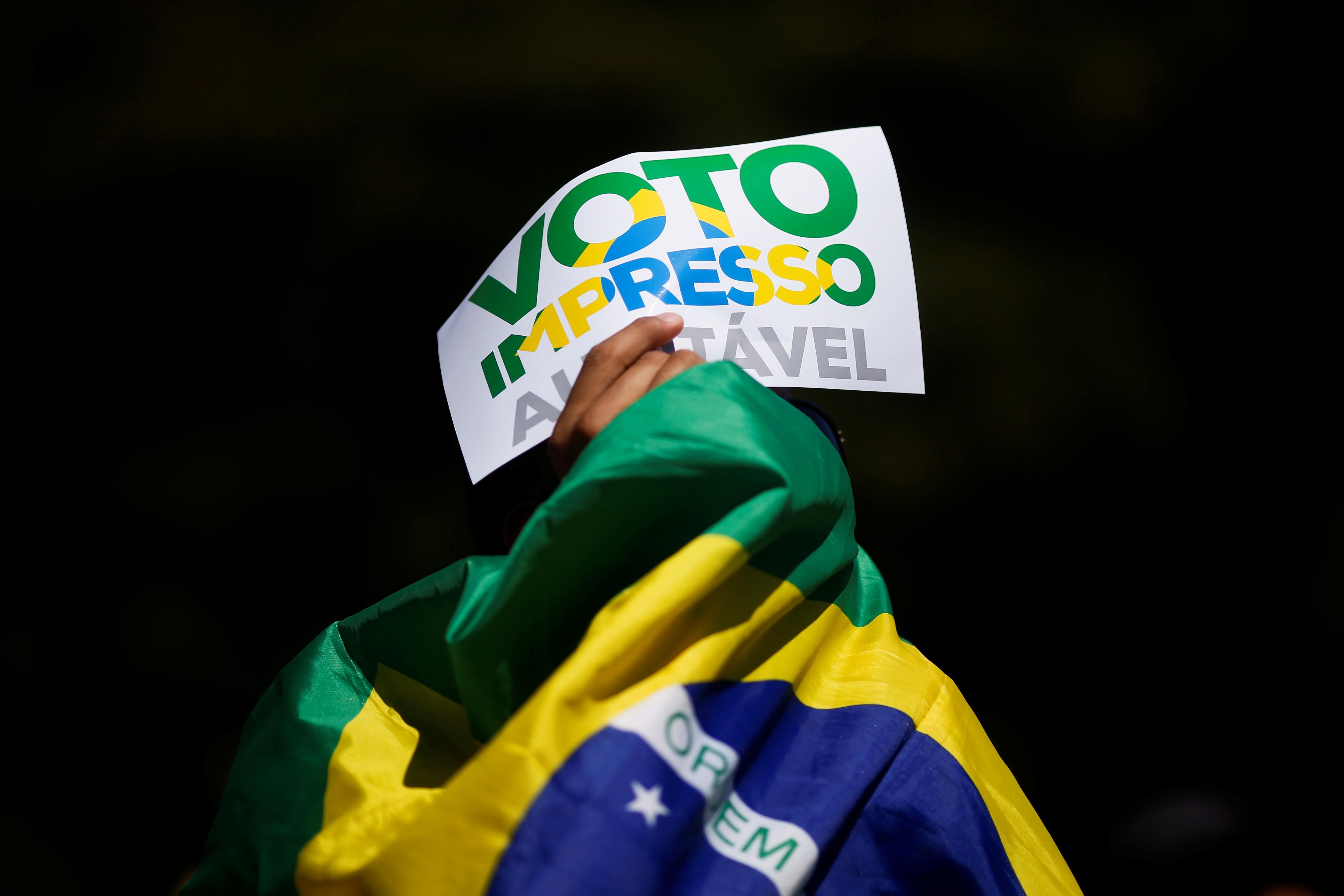The next elections are more than a year away, but Brazilians are already holding their breath: President Jair Bolsonaro will face off against former president Luiz Inácio Lula da Silva, in a very tight contest between two of the most popular and yet controversial political leaders in Brazil. Polls are giving Lula an edge today, mostly because of Bolsonaro's mismanagement of the pandemic, but a lot will change until October 2022, especially as a recovering economy makes Bolsonaro more competitive.
If Lula wins, coming back to power after spending almost two years in jail for alleged corruption, Brazil will take a dramatic policy shift in many areas, especially on the environmental agenda. But stakes are high not only because of that: with so much in play, Bolsonaro is threatening to contest the election results if he loses. We find out more from Silvio Cascione, Brazil director at Eurasia Group.
Why are people worried that Bolsonaro won't accept the 2022 election results?
Because Bolsonaro is making very clear threats. He said, for instance, that if congress does not change the constitution to introduce printed ballots, the elections may not happen. The supreme court has opened an investigation into him because of the threats, and then he replied on August 5 that his reaction could be "outside the constitutional limits." If there was any doubt that Bolsonaro is headed to contest next year's presidential elections, the past few weeks dispelled them.
Has this happened before in Brazil, and to what extent is there a Trump contagion effect at work?
Election fraud was a serious problem in Brazil before electronic voting was introduced in the 1990s. Before that happened, there were other moments in which some groups, like the military, contested election results. But there was no such a threat since democracy was restored in 1988. Trump's example certainly inspires Bolsonaro and his allies. To be sure, Bolsonaro has criticized electronic ballots for many years, even before he was elected president. But they saw how contesting the election results helped galvanize Trump's hardcore base late in his mandate, and he is trying to do the same in Brazil.
Is violence likely around elections? Or only if Bolsonaro loses?
Risk of violence is higher even during the campaign. The 2018 election was already remarkably violent. Bolsonaro was stabbed and Lula almost got shot during a campaign trip. With such high levels of polarization, candidates are already stepping up their security apparatus for 2022. After the vote, risk of violence is higher indeed if Bolsonaro loses and some of this base takes to the streets to contest the results. The leadership of the armed forces will not back him, but he has significant support within the rank and file of the state-based military police forces. Pockets of Bolsonaro supporters in the military police could promote acts of insubordination supporting claims of fraud. Episodes like the January 6 moment in the US could well happen.
What are the prospects of election reversal?
Despite all that, risks of election reversal are very small. Unlike the US, vote counting is quick, as well as any potential audits, and results do not need to be validated by states or by congress. Bolsonaro would remain as president for two months, but he would have no power in the transition period to reverse the results.
What are longer-term risks for Brazilian democracy?
When the president himself throws the electoral system into question, trust in democratic institutions becomes smaller. That is what created the conditions for an outsider like Bolsonaro to get elected in the first place. Now, in office, he is amplifying that distrust by leading a crusade against the electronic vote. If you have a third of the population believing the election was rigged, the government will face a more virulent opposition.
- Brazil's own Godzilla vs Kong | PUPPET REGIME - GZERO Media ›
- Can 'Lula,' the hero of Brazil's left, unseat Bolsonaro? - GZERO Media ›
- Lula vs Bolsonaro: A clash of titans in Brazil - GZERO Media ›
- Brazil insurrection over, but not the threat to democracy - GZERO Media ›
- Brazil's X ban becomes a rallying cry for Bolsonaro - GZERO Media ›
